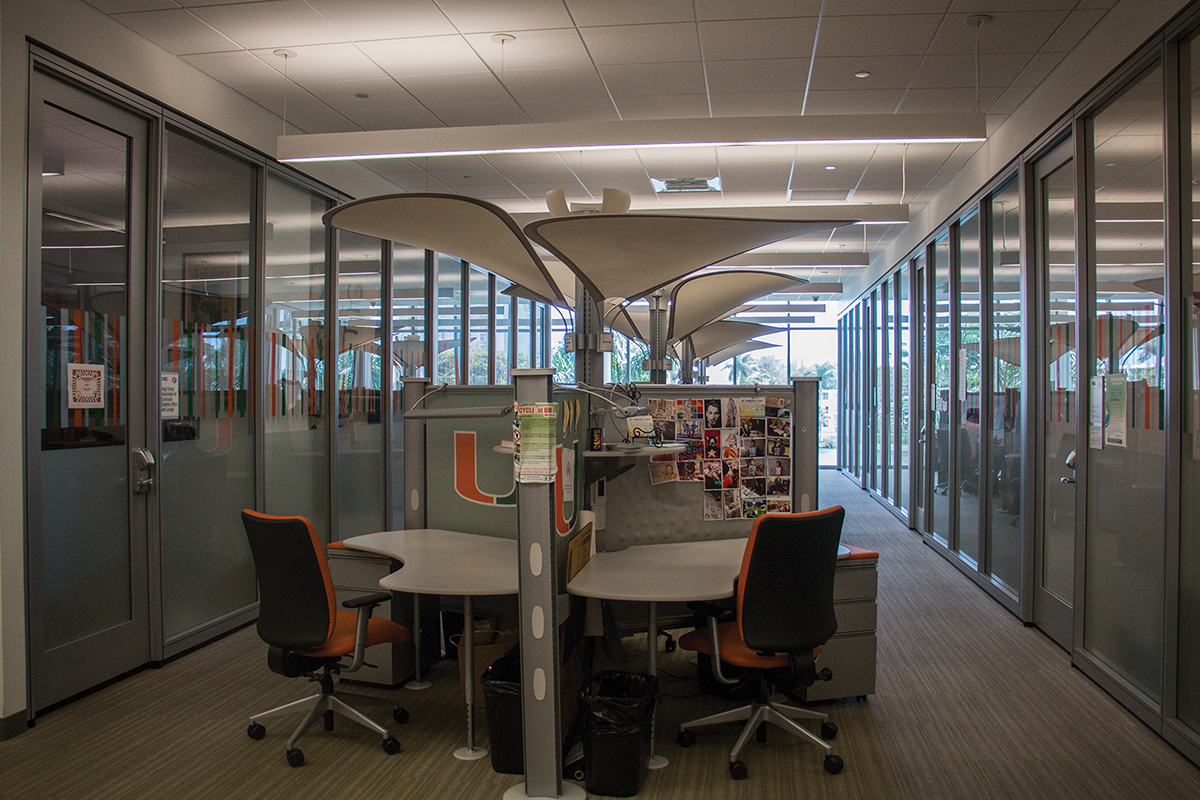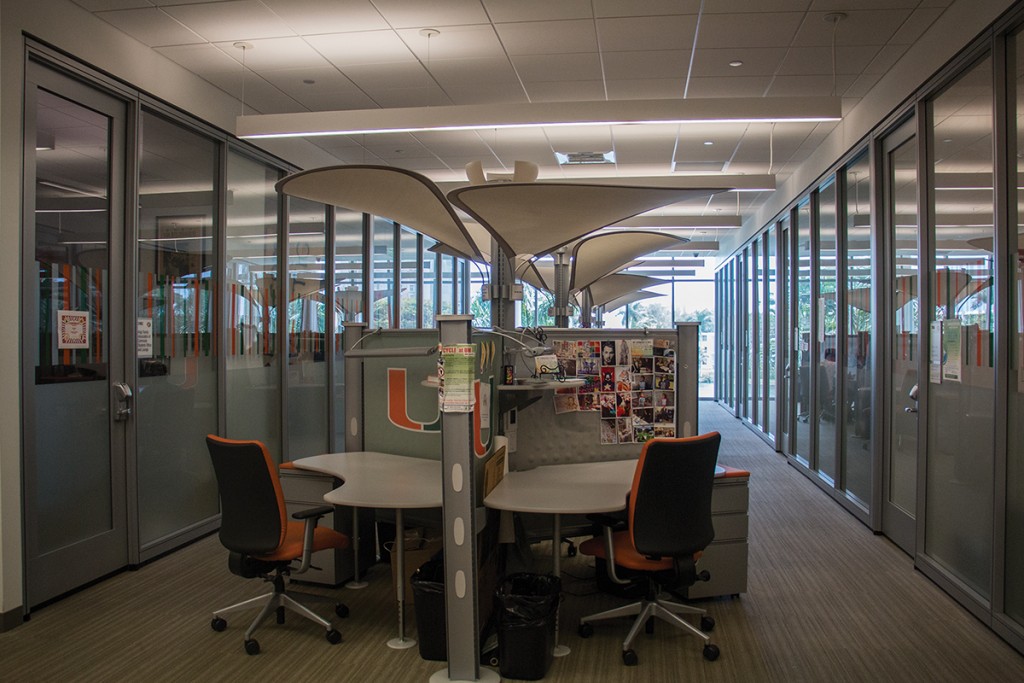

Three student organizations will take over the office spaces occupied by the Asian American Students Association (AASA), Chinese Students and Scholars Association (CSSA) and Indian Students Association (ISA) in the Donna E. Shalala Student Center Complex for the next academic year, the Student Center Complex (SCC) Advisory Council announced Friday.
Recipients of offices include the UM Video Games club and pre-medical fraternity Phi Delta Epsilon (PhiDE), and a political suite will now house the UM College Republicans and UM Young and College Democrats. AASA, CSSA and ISA, who have occupied office spaces for more than five years, will operate out of smaller spaces.
On Friday, the SSC Advisory Council told the three cultural organizations via email that they would be unable to offer office spaces to them. The email said that they “believe that a different type of space is more suitable” for their organizational needs. Ishtpreet Singh, the chair of the SSC Advisory Council, said that the entire committee came to the agreement after viewing the applications, presentations and audit reports of each organization.
“We determined that [AASA, CSSA and ISA] were not utilizing the space appropriately or using it enough, and we felt that there were other options such as giving them cubicles and storages instead,” Singh said.
It has not been confirmed exactly which office space the three incoming organizations will occupy; the three outgoing organizations will receive cubicles in the Shalala Student Center and storage spaces under the Lakeside Patio.
Student organizations had to apply to the SSC Advisory Council for an office space in March. A representative from each organization pitched to the council why they would need an office and the council then decided if the current organizations would continue having their space and, if not, which other organization would take their space.
Patricia Whitely, vice president of student affairs, approved of the decision.
“Per their guidelines, the Council reviewed the requests for student organization space this year in a disciplined, deliberate, careful, comprehensive, and robust process,” Whitely said in an email. “As Vice President for Student Affairs – with very few exceptions – I have always supported student-led decisions.”
The news came to the relief of the 90-member UM Video Games Club, who were vying for an office space. Heather Zons, president of UM Video Games Club, said that the club would usually meet at the Whitten Learning Center, which meant that not many students knew of their existence. She said they will now have a safe space for their members as well as a place to safely secure and store gaming consoles.
“I am over the moon excited about this,” Zons said. “This gives the students a sanctuary to relax and play video games … with people who share their interests. We can offer this luxury to students all year long.”
PhiDE now have a space for their members to connect, relax, study and prepare for big events, such as Stand for the Kids, which raises more than $3,000 annually for Children’s Miracle Network Hospitals.
CSSA President Zhuoying Lin said she was shocked when she heard the news. Lin said CSSA has 60 active members who reach out to more than 1,000 students.
“This will be a big issue for us; we have so many events that if we don’t have a regular place to meet, talk or prepare for the events, this will be an issue for us in helping the Chinese students and spreading the Chinese culture,” Lin said.
CSSA had an office in the Shalala Student Center ever since it was built. Lin said that their location has made it easy for Chinese students to find them.
“We constantly have students come to our office for help. Not having an office means that it will be hard for them to reach us for help,” Lin said. “I don’t understand; we have done so much for the students and it is obvious what we have done. We were very active throughout the year and we helped a lot of students, these are not easy things to do.”
AASA and ISA members also wondered why they would not retain their office despite putting on large events such as AASA’s Lunar New Year festival and ISA’s Holi Festival. But Whitely wrote that past achievements were not a factor in the decision.
“These decisions do not reflect contributions and programming on the campus, but simply reflect how the organization utilized their assigned office space during the last three years,” Whitely said.
In the current plan, no Asian student organizations will have an office next year, considering that the Hong Kong Student Association (HKSA), Japanese Student Association (JSA) and Korean Student Association (KSA) do not have an office, either. According to the school’s website, there are currently 1,212 undergraduate students who identify as Asian or Pacific Islander, making up about 11 percent of the entire undergraduate student population.
Singh said that with over 300 student organizations competing for 20 offices, there was no way to please everyone.
“The process is fair enough that it is not even close to being targeting any groups,” Singh said. “It is a very objective and thorough process. It is difficult that it came down to those three leaving, but it is fair and we are making sure we are providing them options. These organizations do amazing things, and I have been to all their events. It is not a question that they are great organizations; it is a matter of going through the process and meeting all organizations’ needs and all the people we have to represent.”
Singh said he is willing to meet with the organizations to explain the reasons behind the decision.





